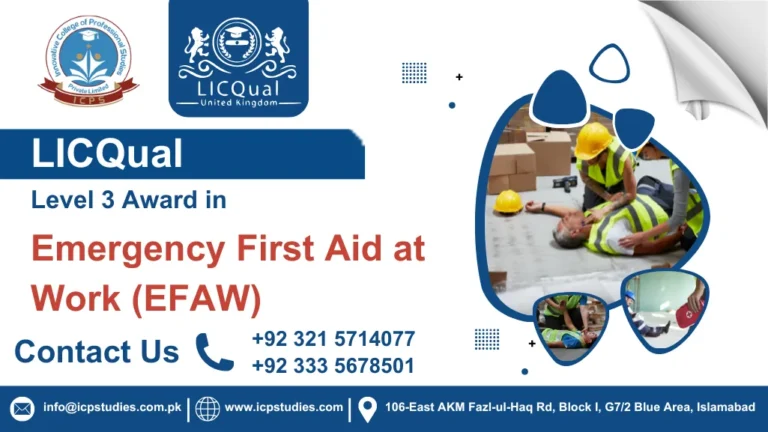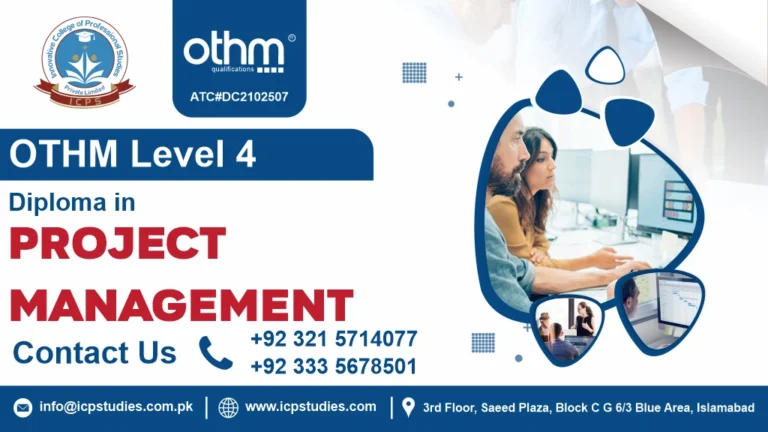Manual handling injuries are a leading cause of workplace accidents and injuries worldwide. From strained muscles to debilitating back injuries, the consequences of improper lifting, carrying, and moving of objects can be severe – not only for employees but also for employers facing lost productivity, increased insurance costs, and legal liabilities.
The LICQual Level 1 Award in Manual Handling at Work is more than just a certification – it’s a comprehensive training program that empowers your team with the knowledge and skills needed to perform manual handling tasks safely and effectively. Through engaging coursework, practical demonstrations, and real-world case studies, participants will learn:
Don’t wait for an accident to happen – take proactive steps to protect your employees and your business with LICQual’s Level 1 Award in Manual Handling at Work. By investing in workplace safety training, you’re not only safeguarding the well-being of your team but also positioning your organization for long-term success and sustainability.
When you partner with LICQual for your manual handling training needs, you’re joining a community of safety-minded professionals committed to creating safer, healthier workplaces. Our experienced instructors are dedicated to your success, providing ongoing support and guidance every step of the way. Enroll now
All About Level 1 Award in Manual Handling at Work
Course Overview
The LICQual Level 1 Award in Manual Handling at Work is a comprehensive training program designed to equip individuals with the knowledge and skills necessary to safely handle objects and materials in the workplace. This course is specifically tailored to address the risks associated with manual handling tasks, such as lifting, carrying, pushing, and pulling, in various occupational settings.
Participants learn to identify common hazards and risks associated with manual handling tasks, including awkward postures, heavy loads, repetitive movements, and environmental factors such as slippery floors or confined spaces.
The course covers fundamental principles of safe manual handling, including proper lifting techniques, load assessment, and ergonomic considerations. Participants learn how to minimize the risk of injury by using correct body mechanics and applying ergonomic principles to their work practices.
Participants gain practical skills in conducting risk assessments for manual handling tasks and implementing control measures to mitigate identified hazards. This includes strategies for reducing the weight of loads, modifying work processes, and using mechanical aids or assistive devices to minimize manual handling risks.
The course provides an overview of relevant health and safety legislation, regulations, and industry standards related to manual handling in the workplace. Participants learn about their rights and responsibilities as employees or employers and the legal obligations for ensuring a safe working environment.
Upon successful completion of the LICQual Level 1 Award in Manual Handling at Work, participants receive a certification demonstrating their competency in safe manual handling practices. This certification not only enhances individual skills and confidence but also contributes to creating a safer and healthier work environment for all employees. Whether in industrial, commercial, healthcare, or other occupational settings, this course is invaluable for anyone involved in manual handling tasks as part of their job responsibilities.
Study Units
Learning Outcomes
Here are the outcomes for each study unit:
- Introduction to Manual Handling:
- Understand the definition and importance of manual handling in the workplace.
- Recognize the scope and variety of manual handling tasks commonly encountered in different industries and occupations.
- Identify the potential risks and hazards associated with manual handling activities.
- Understanding Musculoskeletal Disorders (MSDs):
- Gain knowledge of common musculoskeletal disorders (MSDs) caused by improper manual handling practices.
- Understand the impact of MSDs on physical health, well-being, and work performance.
- Recognize early signs and symptoms of MSDs and the importance of early intervention and prevention.
- Manual Handling Hazards and Risk Assessment:
- Identify and assess manual handling hazards present in the workplace, including environmental factors, task-related factors, and individual factors.
- Understand the principles of risk assessment and apply them to identify and prioritize hazards.
- Develop strategies for implementing control measures to mitigate identified hazards and reduce the risk of injury.
- Safe Manual Handling Techniques:
- Learn and practice safe manual handling techniques tailored to specific tasks and environments.
- Demonstrate proficiency in lifting, carrying, pushing, and pulling objects of varying sizes, shapes, and weights.
- Apply ergonomic principles to minimize strain and stress on the body during manual handling activities.
- Practical Application of Manual Handling Principles:
- Apply theoretical knowledge and practical skills learned in previous units to real-world manual handling scenarios.
- Demonstrate the ability to assess manual handling risks, select appropriate control measures, and execute safe manual handling techniques in simulated workplace settings.
- Receive feedback and guidance from instructors to refine and improve manual handling practices.
By mastering the outcomes of each study unit, participants will be well-equipped to perform manual handling tasks safely and effectively in their respective workplaces. They will also contribute to reducing the risk of musculoskeletal injuries and promoting a culture of safety and well-being for themselves and their colleagues.
Admission Criteria
Here are the entry requirements for the LICQual Level 1 Award in Manual Handling at Work:
- Minimum Age: Applicants must be at least 16 years old at the time of enrollment.
- Educational Background: There are typically no specific educational prerequisites for this course. However, applicants should have a basic understanding of workplace safety concepts and a willingness to learn about manual handling practices.
- Language Proficiency: Proficiency in the language of instruction (e.g., English) is important to ensure understanding of course materials, instructions, and assessments. Applicants may be required to demonstrate language proficiency through standardized tests or other means.
- Health and Physical Fitness: Due to the physical nature of manual handling tasks, applicants should be in good health and physical condition. This includes the ability to lift, carry, push, and pull objects safely and without significant limitations or health concerns.
- Safety Awareness: Applicants should have a basic awareness of workplace safety principles and practices. This may include knowledge of common hazards and risks encountered in the workplace, as well as an understanding of the importance of following safety procedures and protocols.
- Ability to Attend Training Sessions: Participants should be able to attend all required training sessions, whether they are conducted in-person or virtually. Applicants should consider their availability and schedule commitments before enrolling in the course.
- Willingness to Participate: Successful completion of the course requires active participation and engagement in training activities, discussions, and practical exercises. Applicants should be motivated to learn and apply manual handling principles to improve workplace safety.
- Legal Requirements: Depending on the jurisdiction and regulatory requirements, there may be additional legal or industry-specific prerequisites for enrollment in manual handling training courses. Applicants should ensure they meet any relevant legal requirements before enrolling.
Meeting these entry requirements helps ensure that participants are adequately prepared to engage with the course materials and training activities, and to successfully complete the LICQual Level 1 Award in Manual Handling at Work. Additionally, fulfilling these criteria helps create a safe and productive learning environment for all participants.
Ideal Candidate
The LICQual Level 1 Award in Manual Handling at Work is suitable for a wide range of individuals across various industries and occupations who are involved in manual handling tasks as part of their job responsibilities. This course is particularly beneficial for:
- Employees: Workers in industries such as manufacturing, construction, healthcare, hospitality, retail, and logistics who regularly engage in manual handling activities will benefit from this course. Whether lifting heavy objects, moving equipment, or assisting clients/patients, employees can enhance their skills and knowledge to perform manual handling tasks safely and reduce the risk of injury.
- Employers and Managers: Employers, managers, and supervisors have a responsibility to ensure the health and safety of their workforce. This course equips them with the knowledge and tools needed to assess manual handling risks, implement control measures, and promote a culture of safety within their organizations. By investing in manual handling training for their employees, employers can reduce workplace injuries, improve productivity, and demonstrate their commitment to worker safety.
- Health and Safety Professionals: Professionals working in occupational health and safety roles, such as health and safety officers, risk managers, and safety consultants, can benefit from this course to enhance their expertise in manual handling risk assessment and management. This training enables them to provide valuable guidance and support to employers and employees in identifying and addressing manual handling hazards.
- New Entrants to the Workforce: Individuals who are entering the workforce for the first time, such as recent graduates or individuals transitioning to new industries, can benefit from this course to develop essential manual handling skills and knowledge from the outset of their careers. By acquiring these foundational skills early on, new entrants can contribute to a safer work environment and build a solid foundation for future professional development.
- Trade Union Representatives: Trade union representatives play a vital role in advocating for the health and safety of workers in their respective industries. This course provides them with valuable insights into manual handling risks and strategies for addressing workplace hazards. Armed with this knowledge, union representatives can effectively represent the interests of workers and collaborate with employers to implement measures that protect employee health and well-being.
- Contractors and Temporary Workers: Contractors, temporary workers, and agency staff who may be engaged in manual handling tasks across multiple worksites can benefit from this course to ensure they have the necessary skills and knowledge to perform their duties safely and in compliance with workplace health and safety requirements.
In summary, the LICQual Level 1 Award in Manual Handling at Work is suitable for anyone involved in manual handling activities in the workplace, regardless of their job title or industry. Whether seeking to enhance workplace safety, comply with regulatory requirements, or improve job prospects, participants will find this course invaluable in equipping them with the necessary skills and knowledge to perform manual handling tasks safely and effectively.
FAQs about Level 1 Award in Manual Handling at Work






